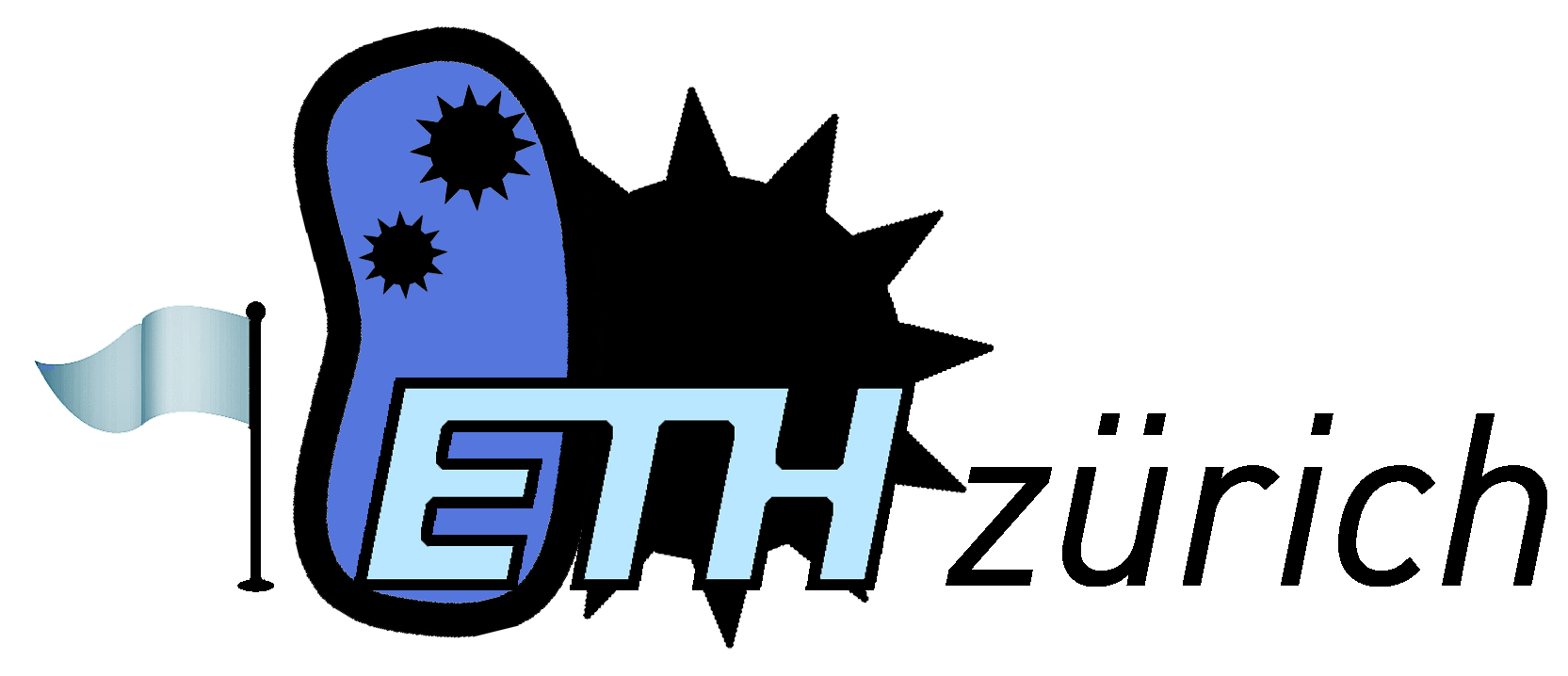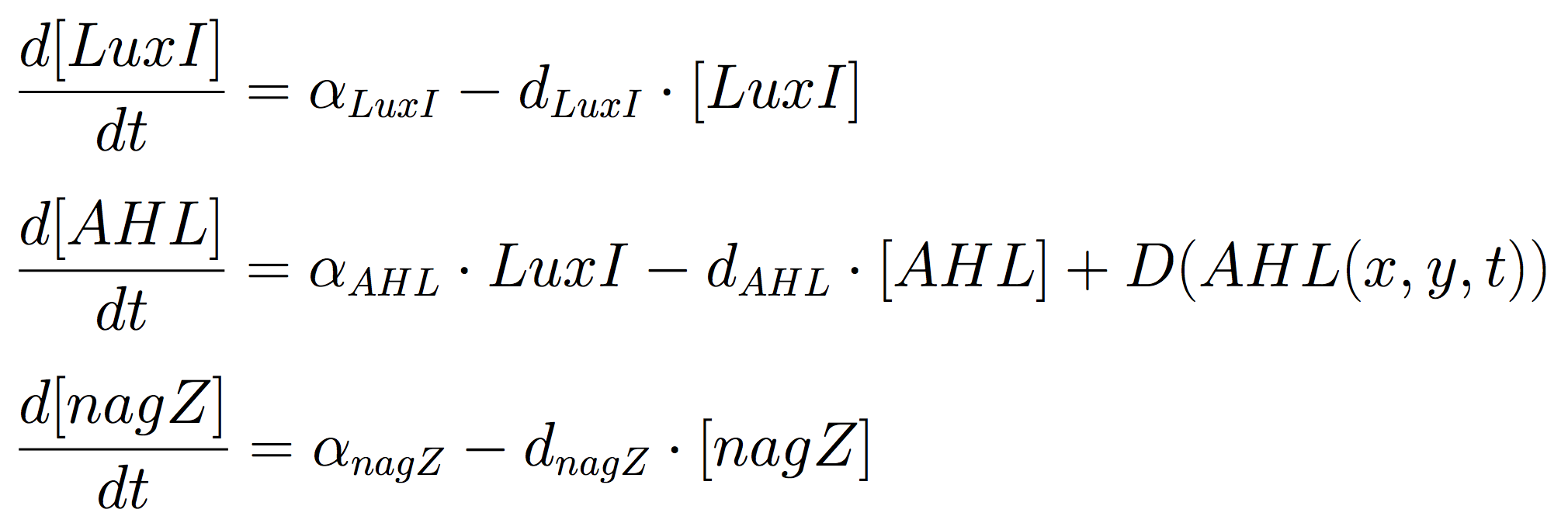Team:ETH Zurich/Modeling
From 2013.igem.org
| Line 2: | Line 2: | ||
{{:Team:ETH_Zurich/Templates/stylesheet}} | {{:Team:ETH_Zurich/Templates/stylesheet}} | ||
| - | < | + | <h1>Circuit containing hydrolases</h1> |
| - | <h1 | + | <h1>Mine Cells</h1> |
| - | + | ||
| - | + | ||
[[File:eqnSender.png|500px|right|thumb|<b>Figure 3: Differential equations of the mine cells</b>]] | [[File:eqnSender.png|500px|right|thumb|<b>Figure 3: Differential equations of the mine cells</b>]] | ||
The Mine Cells lead to the synthesis the signalling molecule, by constitutive expression of ''luxI'' gene. To reveal the nature of the cells, a coloured-substrate reaction is triggered upon addition of ''5-Bromo-4-chloro-3-indoxyl-N-acetyl-beta-D-glucosaminide''; given that the glycoside hydrolase [https://2013.igem.org/Team:ETH_Zurich/Experiments_4 ''NagZ''] is expressed constitutively. <br><br> The ODEs for the states involved in the sender module are given below: | The Mine Cells lead to the synthesis the signalling molecule, by constitutive expression of ''luxI'' gene. To reveal the nature of the cells, a coloured-substrate reaction is triggered upon addition of ''5-Bromo-4-chloro-3-indoxyl-N-acetyl-beta-D-glucosaminide''; given that the glycoside hydrolase [https://2013.igem.org/Team:ETH_Zurich/Experiments_4 ''NagZ''] is expressed constitutively. <br><br> The ODEs for the states involved in the sender module are given below: | ||
| Line 12: | Line 10: | ||
| - | <h1 | + | <h1>Receiver Cells</h1> |
[[File:eqnBiosensor.png|500px|right|thumb|<b>Figure 4: Differential equations of the receiver cells</b>]] | [[File:eqnBiosensor.png|500px|right|thumb|<b>Figure 4: Differential equations of the receiver cells</b>]] | ||
Our Receiver cells are engineered to respond differently to high and medium concentrations of AHL. In principle, cells should be capable of discriminate between the presence of 1 or 2 mine cells around them, in the immediate vicinity. <br> | Our Receiver cells are engineered to respond differently to high and medium concentrations of AHL. In principle, cells should be capable of discriminate between the presence of 1 or 2 mine cells around them, in the immediate vicinity. <br> | ||
Revision as of 20:07, 10 September 2013
Circuit containing hydrolases
Mine Cells
The Mine Cells lead to the synthesis the signalling molecule, by constitutive expression of luxI gene. To reveal the nature of the cells, a coloured-substrate reaction is triggered upon addition of 5-Bromo-4-chloro-3-indoxyl-N-acetyl-beta-D-glucosaminide; given that the glycoside hydrolase NagZ is expressed constitutively.
The ODEs for the states involved in the sender module are given below:
Receiver Cells
Our Receiver cells are engineered to respond differently to high and medium concentrations of AHL. In principle, cells should be capable of discriminate between the presence of 1 or 2 mine cells around them, in the immediate vicinity.
To distinguish between AHL-levels, the expression of the hydrolases is controlled by PLuxR promoters mutants, which are sensitive to different concentration of the dimer LuxR-AHL (denoted as R) given by the number of surrounding mines.
 "
"



